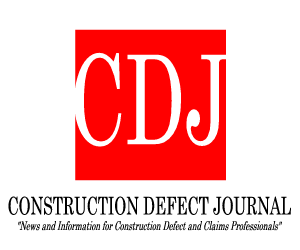Leflet v. Redwood Fire and Casualty Insurance Company, 600 Ariz. Adv. Rep. 6 (App. Div I, January 20, 2011) (J. Swan)IMPERMISSIBLE FOR INSURED AND INSURER TO ENTER MORRIS AGREEMENT THAT ELIMINATES PRIMARY INSURER’S OBLIGATION TO PAY POLICY LIMITS AND INSTEAD PASSES LIABILITY TO PAY TO EXCESS CARRIERHomeowner, insureds brought class action for construction defects. All relevant insurers including the insurer of the subcontractors issued reservations of right. The subcontractor’s insurer was obligated under its policy to also insure the general contractor. Ultimately the homeowners entered into a settlement agreement with the contractor and its primary insurer which included a stipulated judgment of $8.475 million. The agreement further attempted to absolve the primary insurer of any obligation to pay more than $375,000 and instead attempted to pass all responsibility to pay subcontractors and their insurers. Finally, the contractor and its insurer assigned all their rights against the subcontractors and their insurers to the class action plaintiff homeowners. Notably the subcontractors and their insurers had no notice of the agreement until it was finalized and approved by the court. The subcontractors ultimately settled under their exposure in the agreement and their carrier intervened during the reasonableness hearing of this Morris agreement. The trial court then ruled that the failure to give the sub’s insurer notice of the agreement constituted a breach of the cooperation clause and voided the agreement. The insurer was awarded attorneys’ fees and costs.The Arizona Court of Appeals affirmed. “Unlike the insured in Morris, Hancock did not act simply to protect itself from an insurer’s refusal to extend unconditional coverage. Instead, it acted as an agent of an insurer that sought to limit its own liability. As parties to the agreement, the Direct Insurers’ interests were aligned with — not opposed to — those of their insured.” Further, the primary carrier shared none of the risks that the insured had and which form the grounds for a Morris agreement; the primary carrier does not have the risk of being personally exposed to an excess judgment or risk receiving nothing if the cooperation clause is deemed breached. “Because Morris agreements are fraught with risk of abuse, a settlement that mimics Morris in form but does not find support in the legal and economic realities that gave rise to that decision is both unenforceable and offensive to the policy’s cooperation clause.”Read the full story...Reprinted courtesy of Ted Schmidt, Burt Kinerk, Dev Sethi and Matt Schmidt of Kinerk, Schmidt & Sethi, PLLC.
Insurance Law: Morris Agreement in Construction Defect Class Action
February 7, 2011
—

CDJ SECTIONS
CONSTRUCTION NEWS
CONSTRUCTION INSURANCE NEWS
HOMEBUILDERS NEWS
CONSTRUCTION DEFECT SEMINARS
CONSTRUCTION DEFECT CHANNEL
CONSTRUCTION DEFECT JOURNAL HOME
SUBSCRIBE TO CDJ
LETTERS TO THE EDITOR
CONTACT CDJ SUBMIT STORY
CD NEWS YOU MIGHT HAVE MISSED
ARCHIVES
CD DEFECT COVERAGE ISSUES
CD ARTICLES
Construction Defect Journal is aggregated from a variety of news sources, article submissions, contributors, and information from industry professionals.
No content on this site should be construed as legal advice or expert opinion. By viewing this site you agree to be bound by its terms and conditions
Copyright 2024 - Construction Defect Journal – All Rights Reserved



